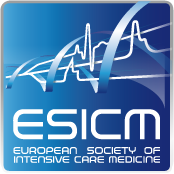UK Critical Care Genomics (UKCCG) group
Genetic and epigenetic modulators of gene expression in sepsis as part of the UK Genomic Advances in Sepsis (GAinS) study
Sepsis, severe sepsis and septic shock remain common causes of admission to intensive care units and are associated with a persistently high morbidity and mortality, despite optimal organ support and microbiological treatment. It remains unclear why only particular patients should develop sepsis while others rapidly recover from bacterial infection but host genetic factors are important. Genetic research in sepsis offers opportunities for new insights into disease pathogenesis and optimised therapy tailored to the individual patient
.
A number of important genetic variants have been identified in sepsis, notably for genes involved in pathogen recognition and signalling such as toll like receptors (TLR2,4), nucleotide-binding oligomerisation domain receptors (NOD2), Mal (TIRAP), IL-1 receptor-associated kinase (IRAK1), and mediators of innate immunity such as tumour necrosis factor (TNF), interleukin 6 (IL6) and interleukin 10 (IL10)
On-going work through the GAinS study will map genetic associations for severe sepsis based on a genome-wide association study (GWAS) design. To compliment and inform the results of GWAS, we aim to resolve the functional genomic and epigenomic landscape of sepsis and define functional genetic variants. This involves recruitment of patients admitted to intensive care as part of GAinS for transcriptomic profiling of peripheral blood leukocytes together with analysis of plasma and urine samples. To date, over 1000 patients admitted with severe sepsis due to community-acquired pneumonia or faecal peritonitis have been recruited
This work is being led by Dr Julian Knight at the Wellcome Trust Centre for Human Genetics in Oxford together with Professor Charles Hinds and the GAinS Investigators
Research programs
Genomic Advances in Sepsis (GAinS)
- Aims and Background
- Protocol
- Trial Registration
- Frequently Asked Questions
- Current Recruitment Status
- Clinical Record Form (CRF)
- CRF Completion Guidance Notes
- GAinS Newsletters
- Investigators Meeting
Genetic and epigenetic modulators of gene expression in sepsis as part of the UK Genomic Advances in Sepsis (GAinS) study.
MREC 05/MRE00/38


